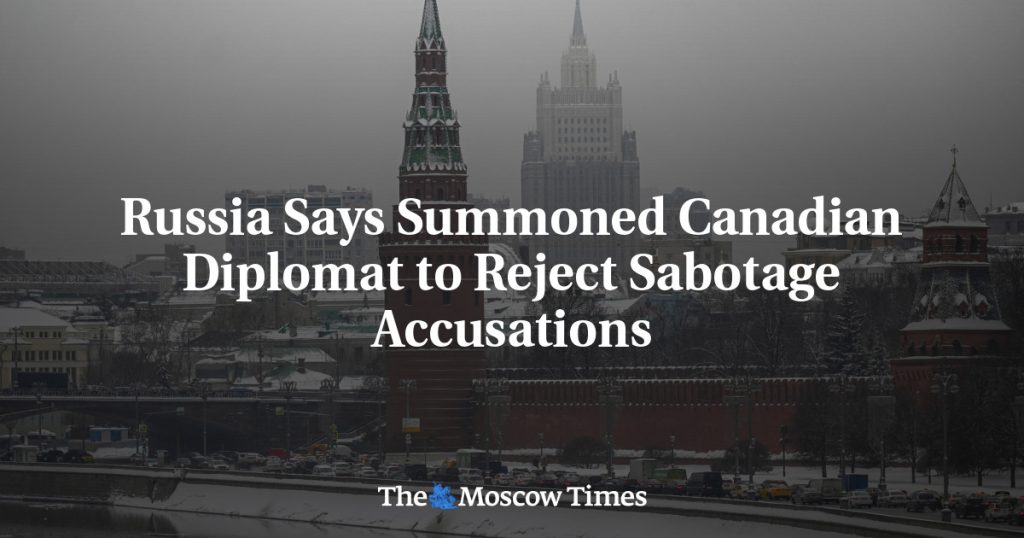Moscow has summoned a Canadian diplomat in response to allegations that Russia’s secret services orchestrated a campaign to mail explosive packages to NATO countries, including Canada. The accusations came after a series of fires at DHL depots in Britain and Germany this summer, with Russia being accused of plotting to ship explosive parcels via commercial airliners. Ottawa expressed concern to Russian officials after arrests were made in Poland and Lithuania for attempts to send parcels with explosives to the United States and Canada. Russia denies the allegations, calling them false and part of a provocation led by the United States.
Canada’s public safety ministry has expressed deep concern over Russia’s intensifying campaign, which includes cyber incidents, disinformation operations, and sabotage activities. Canadian officials have directly informed Russian counterparts that any threat to the safety and security of Canadians is unacceptable. While there is no imminent threat to the public, Canada will continue to monitor the situation closely. Transport Minister Anita Anand stated that more information on the alleged plot is needed, and additional steps will be taken to ensure the safety of passengers and packages. The reported plot involving civilian airlines reflects growing concern in the West over Russia’s espionage and sabotage activities in NATO countries.
The escalating tensions between Russia and NATO countries have raised alarm over what is perceived as Russia’s increasingly reckless behavior in conducting espionage and sabotage operations. A Lithuanian official confirmed Russia’s involvement in sending incendiary packages across Europe, adding to the growing concerns about Russia’s actions. Moscow has accused the West of engaging in a coordinated hybrid war against Russia and calls the allegations of planned sabotage against NATO countries false and unacceptable. The situation highlights the challenges faced by Western countries in dealing with Russia’s aggressive activities in the region.
Amidst these allegations and counter-accusations, the situation underscores the complex geopolitical dynamics at play between Russia, NATO countries, and other global powers. The exchange of diplomatic statements and actions reflects the escalating tensions and mistrust between the parties involved. The involvement of civilian airlines in the reported plot adds a new dimension to the ongoing conflict, raising concerns about the safety and security of air travel in the region. The public statements by Canadian and Russian officials indicate a high level of scrutiny and concern over the potential threats posed by these actions.
The accusations of Russian involvement in sending explosive packages to NATO countries and the subsequent denials by Moscow point to a deeper distrust and conflict between Russia and Western nations. The use of espionage, sabotage, and disinformation tactics underscores the ongoing struggle for power and influence in the region. The situation highlights the fragile balance of power and security in Europe and the challenges faced by countries in addressing these threats. The need for continued vigilance and cooperation among international partners is crucial in addressing the complex security challenges posed by such incidents.
As tensions continue to rise and accusations fly between Russia and NATO countries, the situation underscores the need for dialogue and engagement to prevent further escalations. Diplomatic channels remain crucial in addressing the challenges posed by espionage, sabotage, and other security threats in the region. The ongoing conflict highlights the importance of maintaining open communication and cooperation to ensure the safety and security of all parties involved. Despite the challenges and obstacles, efforts to engage in meaningful dialogue and find peaceful solutions are essential in addressing the complex geopolitical dynamics at play in the region.














